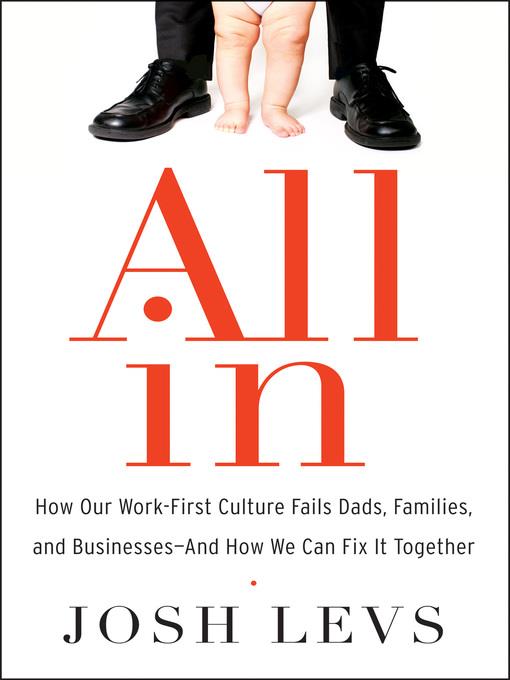
All In
How Our Work-First Culture Fails Dads, Families, and Businesses—And How We Can Fix It Together
کتاب های مرتبط
- اطلاعات
- نقد و بررسی
- دیدگاه کاربران
نقد و بررسی

March 16, 2015
CNN reporter Levs issues an articulate call for men to fight against the laws, policies, and stigmas preventing them from fully participating in their families’ lives. As he points out, this is no longer a 1950s Father Knows Best world; today “men and women are sharing child-rearing and household responsibilities.” Still, Levs believes attitudes haven’t changed enough, quoting Sheryl Sandberg’s astute observation that we’ve changed the workplace, but not the home. When he first joined CNN, he was astonished to find that a generous parental leave policy applied to any kind of parent, both birth and adoptive, except for a biological father. After a year of fighting, the policy was changed. Levs takes on issues both concrete (parental leave, the tax system, paid family leave) and societal (the doofus dad stereotype, the fear of men as predators, the stigma against men taking time off work for family.) His practical solutions—like helping businesses to afford family leave by lowering taxes—are solid, but when he argues that men are ill-served by the current system, his tone becomes shrill and less convincing. Lev’s thoughtful plea for men and women to work together is more persuasive, providing a useful guide for those looking to effect change in their own workplaces and communities. Agent: Mollie Glick, Foundry Literary + Media.

March 1, 2015
Using his personal experience as a jumping-off point, journalist and "dad columnist" Levs examines the need for more paternity leave in the United States.When his third child was born, the author wanted time off to be with his family. However, he quickly discovered he would only receive two weeks, unlike others, such as adoptive parents, same-sex partners, and mothers, who would receive 10 weeks. Levs filed a lawsuit and began a serious investigation into the discrepancies between maternal and paternal paid leave. Since an increasing number of fathers are becoming involved in the day-to-day raising of their children, it makes sense that they want to be there during the first critical months of a child's life. But as Lev points out after conducting over "150 hours of interviews" with male workers, the amount of paid leave is far from fair for the new fathers. The author's interviewees "divulge their struggles to find balance, and their thoughts on all the issues that play into the fight for gender equality: work, home life, money, 'male privilege,' 'female gatekeeping,' and a lot more." Through his straightforward analysis, Levs shows how the male-female dynamics at home have changed significantly over the past 50 years, while those same forces have not changed in the workplace. Fathers are expected to continue working while new mothers must handle all crises at home on their own, and men who place family before work are often punished and even fired. Levs also considers the issues surrounding absentee fathers, the lack of intimacy for new parents, and finding the mental and spiritual balance needed to continue parenting well during times of extreme emotional and physical stress. His scrutiny and evaluation of paid paternity leave leaves no doubt that the entire infrastructure needs a serious renovation. Well-documented and easy-to-comprehend data on why men need more paid time off to be with their newborn children.

























دیدگاه کاربران